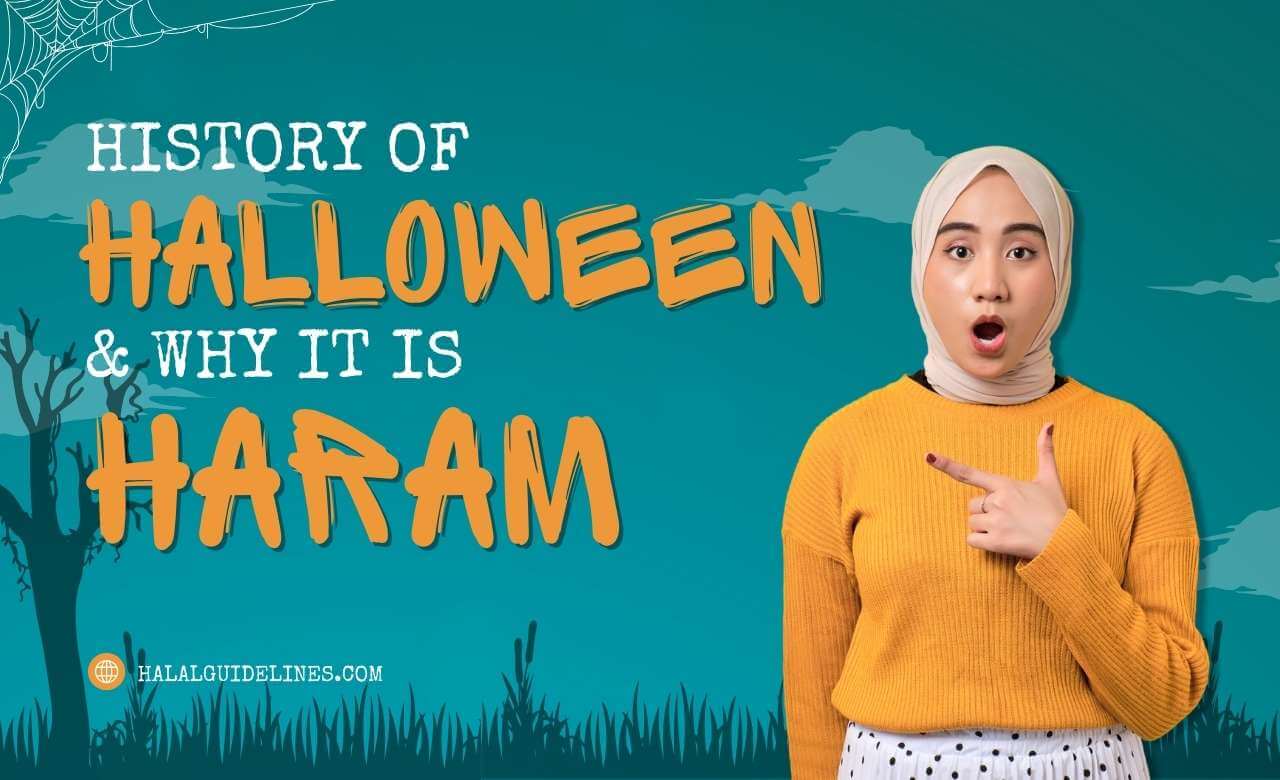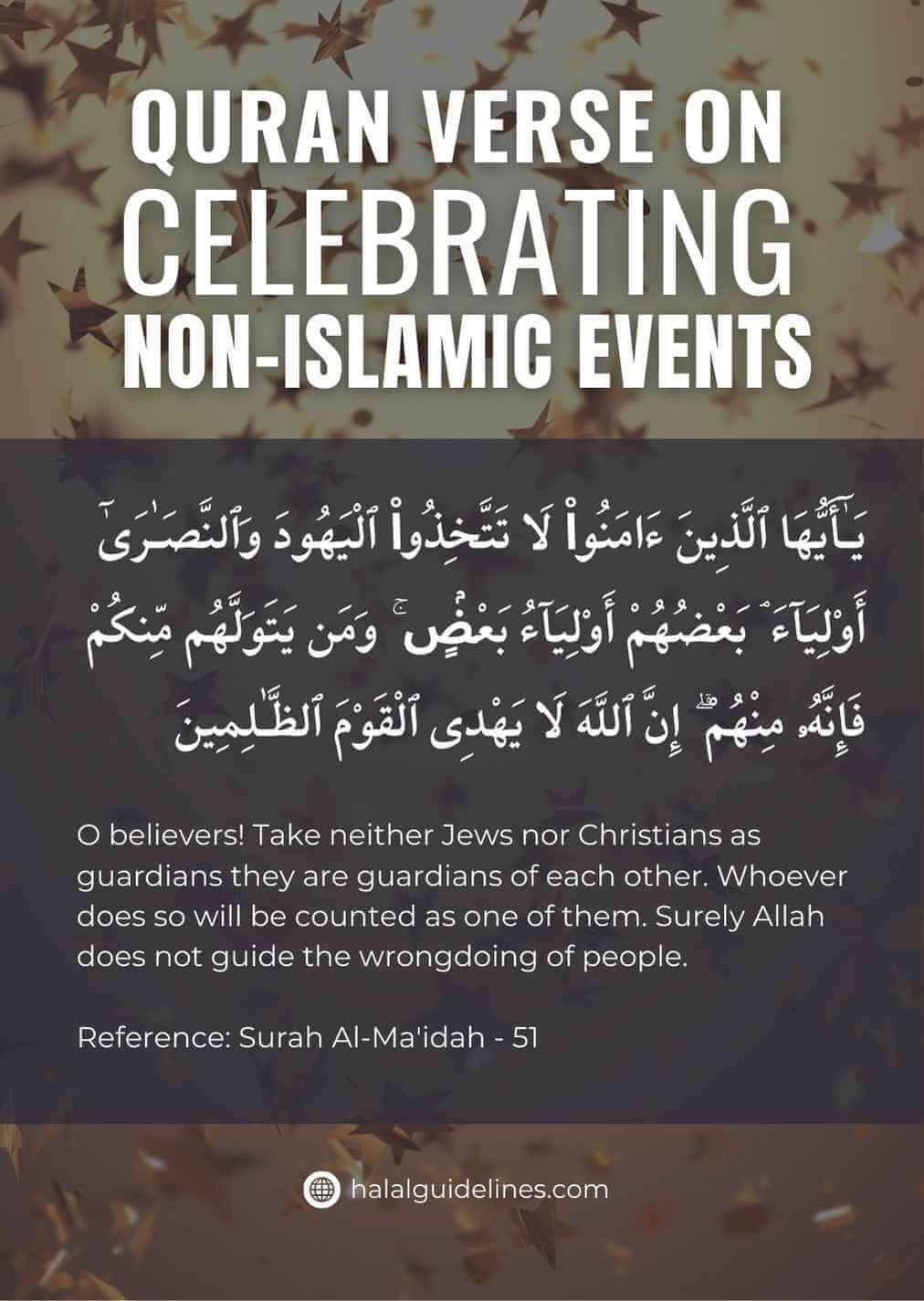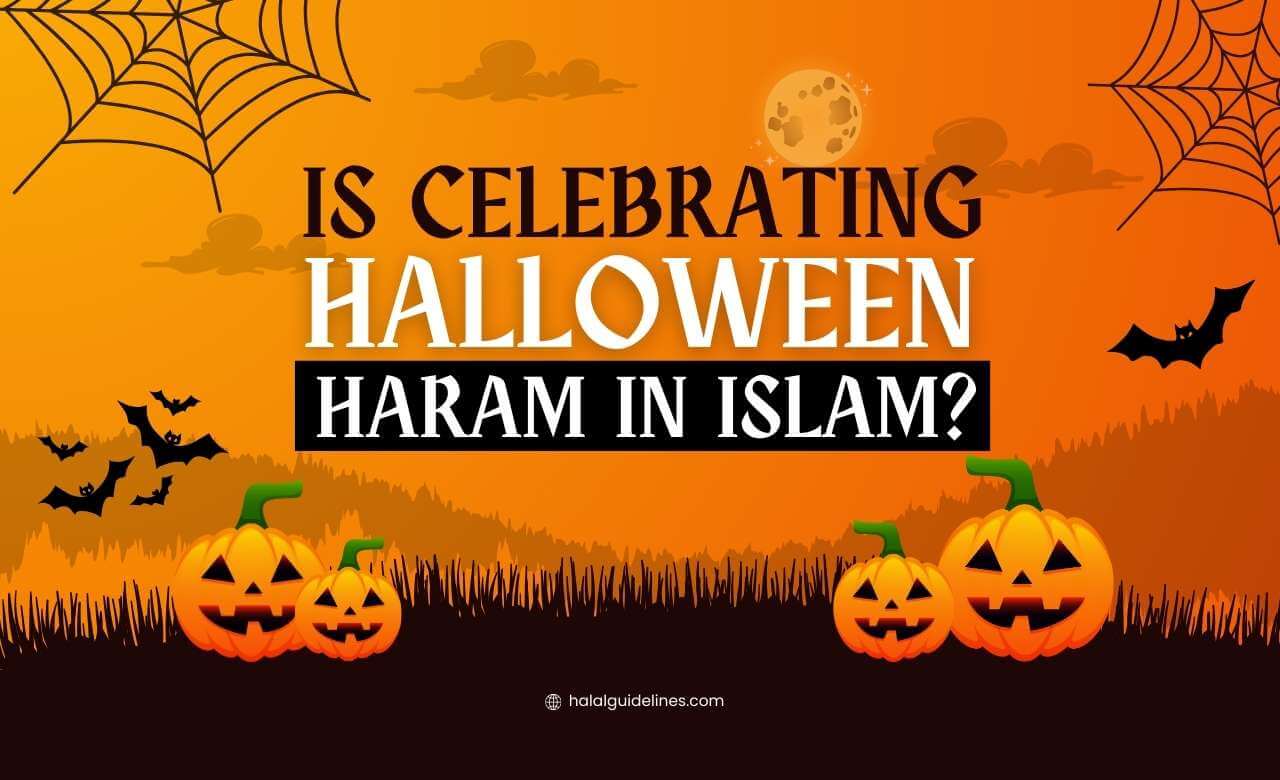Celebrating Halloween brings one closer to negative influences, so it’s important to make choices that match our Islamic values to avoid possible consequences. Some Halloween activities, like promoting supernatural elements, do not align with Islamic teachings. So, we advise our Muslim brothers and sisters to avoid participating in Halloween.
History of Halloween & Why This Event is Haram For Muslims

Halloween originated over 2,000 years ago from the ancient Celtic festival called Samhain. During this festival, people believed that the line between the world of the living and the dead became thin, letting ghosts return to Earth. To keep spirits away, they would light bonfires and dress up in costumes.
When Christianity spread, the church established November 1st as “All Saints’ Day,” also known as “All Hallows.” This made October 31st “All Hallows’ Eve,” which later became known as “Halloween.”
Today, it has evolved into a non-religious holiday involving costumes, trick-or-treating, and spooky celebrations which are not suitable for our Muslim community.
Why Muslims Should Not Participate
Halloween has deep roots in pagan (non-believer) and non-Islamic traditions that directly conflict with Islamic teachings. These celebrations go against the core belief in Islam, which is the worship of one Allah (Tawheed).
Several reasons make Halloween celebrations forbidden (Haram) for Muslims:
- Halloween is about ghosts, witches, and evil spirits. In Islam, we are taught not to believe in or play with such things as they go against our true faith.
- The holiday includes magic and fake supernatural powers. Islam strictly forbids any kind of magic or superstitious beliefs and practices.
- Wearing costumes of devils, zombies, or monsters is wrong in Islam because these things are part of the unseen world that Allah has told us about seriously in the Quran.
- The “trick or treat” custom teaches children to ask for candy by threatening tricks. This goes against Islamic teachings of being honest, kind and having good manners.
- Halloween parties often have boys and girls mixing freely, people wearing revealing costumes, and music with bad messages.
- When Muslim children join these non-Islamic celebrations, they might get confused about their faith and Islamic values. This can make their Islamic identity weaker over time.
In Islam, Allah has blessed us with our celebrations like Eid ul-Fitr, Eid ul-Adha, and Eid Milad-un-Nabi. These holidays provide us with halal ways to celebrate, have fun, and create lasting family memories while staying true to our faith.
As Muslims, we should feel proud of our distinct identity and focus on strengthening our connection with Allah through our beautiful traditions rather than adopting practices that are against our beliefs.
Check Out More Islamic Educational Articles:
- List Of Haram Things Parents
- Is Talking or Touching Non-Mahram Haram?
- Is Shaving Beard Haram?
- Is Smoking Haram?
Quran on Celebrating Non-Islamic Traditions
The Holy Quran is a complete guide for Muslims, providing clear direction for every aspect of our lives. When we face confusion about what is right or wrong, the Quran’s teachings help us make the right choice. Allah has given us clear guidance about maintaining our unique Islamic identity and not following practices that go against our faith.
يَـٰٓأَيُّهَا ٱلَّذِينَ ءَامَنُوا۟ لَا تَتَّخِذُوا۟ ٱلْيَهُودَ وَٱلنَّصَـٰرَىٰٓ أَوْلِيَآءَ ۘ بَعْضُهُمْ أَوْلِيَآءُ بَعْضٍۢ ۚ وَمَن يَتَوَلَّهُم مِّنكُمْ فَإِنَّهُۥ مِنْهُمْ ۗ إِنَّ ٱللَّهَ لَا يَهْدِى ٱلْقَوْمَ ٱلظَّـٰلِمِينَ
Meaning: O believers! Take neither Jews nor Christians as guardians—they are guardians of each other. Whoever does so will be counted as one of them. Surely Allah does not guide the wrongdoing of people.
Reference: Surah Al-Ma’idah – 51

This verse teaches us that Muslims should be careful about not copying or following the religious practices of other faiths. It does not mean we can’t be kind or respectful to people of other religions.
It means we should not adopt their religious celebrations or practices as our own. When we celebrate non-Islamic festivals like Halloween, we are imitating practices that do not line up with Islamic teachings.
Islamic Scholar’s Views on Celebrating Halloween
Many Muslims often wonder about Halloween and if they should let their children participate in these celebrations. In such situations, it is important to seek knowledge from Islamic scholars who deeply understand our religion and can guide us with wisdom.
Our respected scholars have provided clear explanations based on the Quran and Hadith to help Muslims understand why Halloween celebrations are not set with Islamic teachings.
Dr. Shabir Ally Famous Islamic Scholar
Dr. Shabir Ally talks about Halloween and whether Muslims should participate in it. Many scholars believe that Halloween is haram (forbidden) because of its pagan origins and links to shirk, which means associating partners with Allah.
He suggests that Muslims should think about their own situations and how participating fits with their values, trying to find a balance between fitting in with their culture and following their faith.
Here you can seek guidance from his video below:
Dr. Muhammad Salah Another Famous Islamic Scholar
Dr. Muhammad Salah talked about Halloween and how it affects Muslims. He said that celebrating Halloween is a big sin and can even lead to disbelief if someone believes in it.
He warned that Muslims are copying non-Muslims too much, mentioning that the Prophet Muhammad (Peace Be Upon Him) said Muslims would follow non-Muslims in their ways. Dr. Salah stressed that real Muslims stick to their religious duties, no matter what happens around them.
Shaykh Uthman Ibn Farooq
He says that Halloween has roots in devil worship and sacrifices, so Muslims, Christians, and Jews should not take part in this celebration. He warns that copying these practices might connect you with those who follow them on the Day of Judgment. Instead, he encourages believers to celebrate the events that their prophets taught them and to stay away from Halloween.
Listen to his video below:
By following the guidance of our respected scholars, we can better understand why staying away from Halloween is important for protecting our faith. Instead of feeling left out, we should feel proud of our Islamic identity and the beautiful celebrations Allah has blessed us with.
More Related Faqs Muslims Ask
Is it halal to give candy to trick-or-treaters who come to our door?
While being kind to neighbors is important in Islam, it’s better to explain that we don’t participate in Halloween politely. You could instead share treats with neighbors on Islamic occasions or give charity in other ways that align with our faith.
Can Muslim children wear innocent costumes during the Halloween season?
Even innocent costumes during Halloween time are not recommended because it still means participating in a non-Islamic celebration. Encourage children to dress up for halal occasions like Eid celebrations or Islamic school events.
Is it halal to buy discounted candy after Halloween?
Talk to your children’s teachers about providing alternative halal activities during Halloween events. You can also plan special Islamic activities at home or organize fun gatherings with other Muslim families during this time.
What can we do to help our Muslim kids feel included when their school celebrates Halloween?
Talk to your children’s teachers about providing alternative halal activities during Halloween events. You can also plan special Islamic activities at home or organize fun gatherings with other Muslim families during this time.
In Summary
Dear Muslim brothers and sisters, we should always remember that Islam has given us a complete way of life. Our beloved Prophet Muhammad (S.A.W) has shown us the right path in every matter.
We don’t need to follow celebrations like Halloween when Allah has blessed us with beautiful celebrations that bring us closer to Him. By following the footsteps of Prophet Muhammad (S.A.W), we can teach our children the beauty of Islamic celebrations.
May Allah (SWT) guide us all to the right path and bless us with good deeds. Ameen.
[الله أعلم – And Allah knows best]







